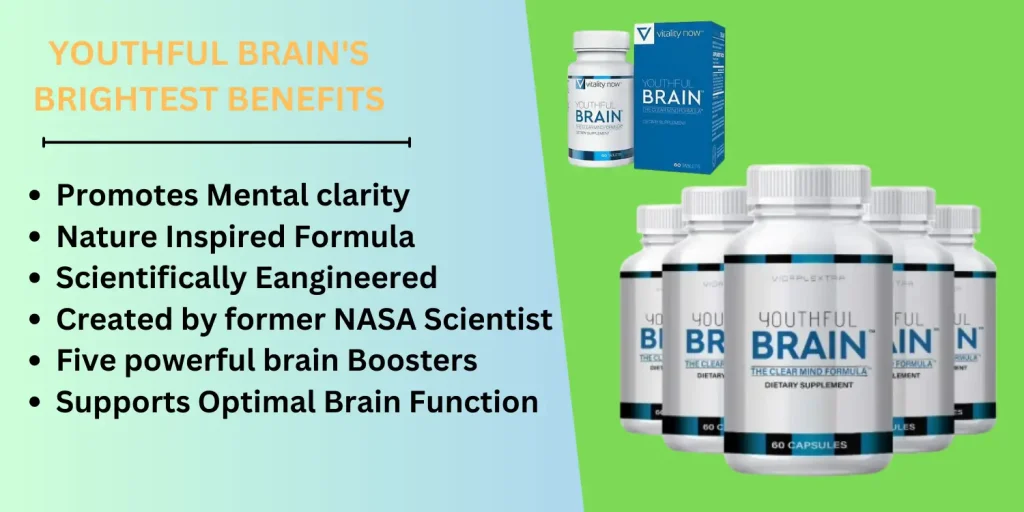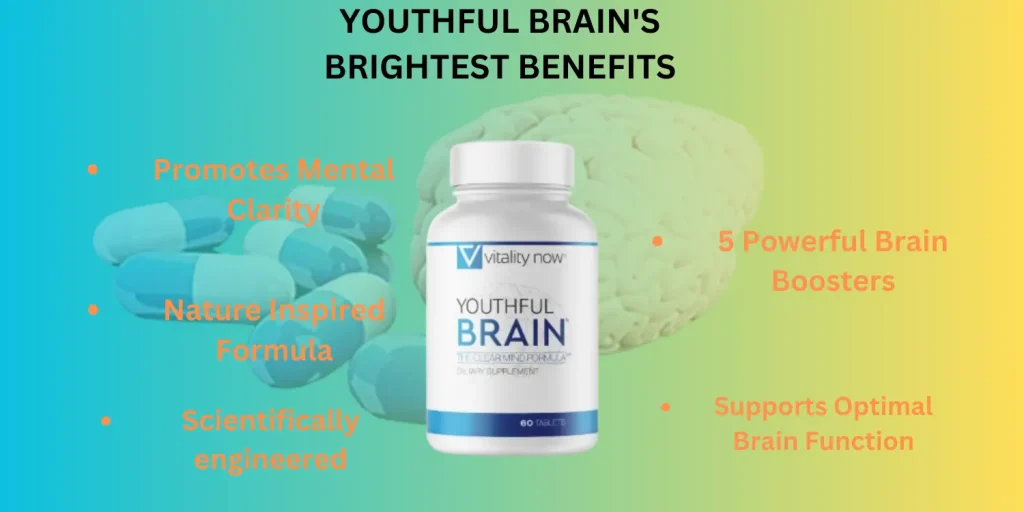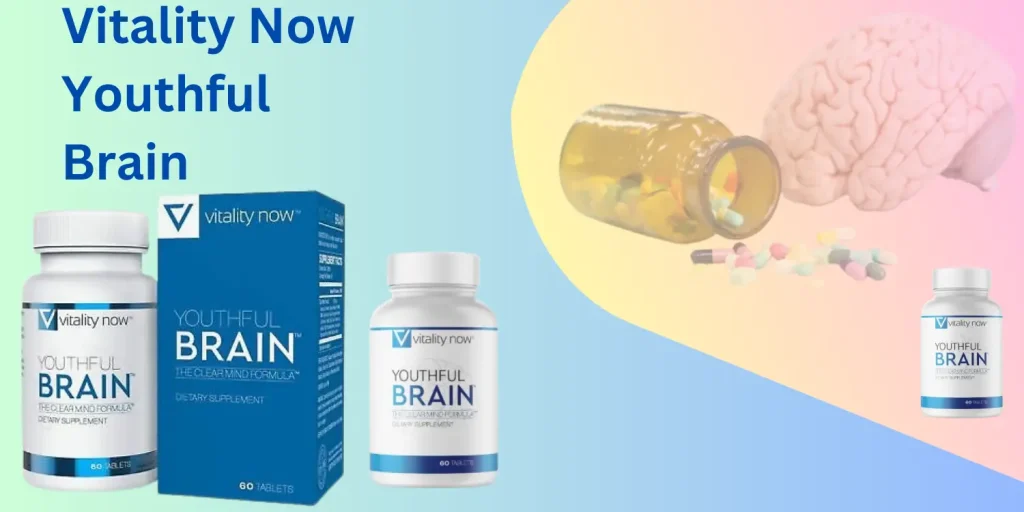Introduction about the youthful brain?
The young brain is a reservoir of positive characteristics such as growth, vitality, and adaptability. The brain experiences a continued rate of growth during adolescence and, like the adult brain, has the ability to adapt and change in response to experiences; the region to the frontal areas of the brain is also developed and slightly plastic in order to accommodate newly acquired information. Due to many possibilities of the brain, the latter stage is associated with ability to learn new material, creativity, and memory consolidation.
Cognitive and emotional development is directly determined by such important processes as myelination and the pruning of superfluous synapses that ensure appropriate brain connectivity. The two main characteristics of the young brain are curiosity and the ability to adapt, due to the fact that the young have the ability to be curious, learn, and adapt to new surroundings. Understanding of this period allows understanding of the effects of early experience, lifetime brain health, and ways to support the best possible mental and emotional growth.

Does youthful brain really work?
Youth brain demonstrated remarkable learning ability, plasticity, and solves problems effectively and is overactive and productive. This is because the human brain that is involved in the learning of new knowledge and diverse abilities is highly plastic, and because of plasticity, the construction of neural connections can go very fast and can also be reconstructed in the shortest time.
However, whether or not the young brain works to its potential depends on some facets. Because of its prefrontal brain and its underdevelopment, it is often impulsive and a risk-taker, even if it is creative, has a good memory, and is very adaptable. Despite the fact that possession of such qualities is challenging at moments, they are imperative to the process of learning and growth. The young brain is very active and functioning, but in different ways from a developed brain due to its stages of development. We have the balancing parts that are still under development and other parts that do function well.
What are the ingredients of a youthful brain?
The human brain develops and learns depending on a combination of what may be termed as biological factors, physical characteristics, and behaviors. Others are synaptic density, a high level of communication density since it helps neurons to relate with other neurons best, and neuroplasticity since learning and development of new connections.
Although the speeds of signal propagation are increased by the process of myelination, the required amount of such neurotransmitters as dopamine and serotonin is produced to regulate motivation and mood.
Brain cells are fed on a rich omega-3 fatty acid and antioxidant diet and important vitamins; further, the cerebral blood circulation and the release of brain-derived neurotrophic factor (BDNF) through regimented physical activity also shape cognition. For growth and the well-developed, youthful brain’s capacity to learn and be inventive, connections, stimulation, and sleep are also required.
What are the benefits of using this youthful brain?
The young brain is very flexible and adaptive and has numerous advantages due to the same reason. It is good at acquisition and causes individuals to be able to develop new skills, acquire knowledge, and adapt to change with great ease. Such flexibility fosters innovation, creativity, and the ability to solve problems, making it a great strength in the workplace, school, and in patient growth.
A young brain is curious; it is inclined towards exploration and discovery; effective memory systems are at work in a young brain. The growth of cognitive resistance at this stage is the basis for future healthy psychological models and adaptability. Self- and inter-individual functioning is another way in which the ability to reason with emotions and establish relationships is helpful. Optimizing the young brain’s capacity results in lifelong improvement of relationships, knowledge, and self-actualization.
What is the very best brain supplement?
Owing to the fact that everyone’s requirements would help in deciding on which brain supplement is most appropriate, some nutrients are demonstrative in enhancing the mind’s functionality. However, DHA, especially, is one of the most efficient omega-3s for improving memory, cognitive ability, and the development of neurons.
The recommended nutrient facts for avoiding lethargy and maintaining the brain’s functionality are B6, B9, and B12 vitamins. It is common knowledge that ginkgo biloba enhances the supply of blood to the brain and thus enhances memory and concentration.
We also have Bacopa monnieri and lion’s mane mushrooms that are quite popular in enhancing neurological functions and protection. Oxidation is combated by antioxidants, vitamin E and L-theanine from green tea and its chemical, EGCG. Any individual intending to take supplements should consult a health care provider first before taking them.

Which product is best for the brain?
Personal needs define what is the best product for the brain, yet some products are scientifically recommended for their benefits. The DHA and EPA, both omega-3 fatty acids found in fish oils, are good for memory, cognitive functions, and overall brain health. The multivitamins contain B6, B9, and B12, which assist in making energy and sharpening the mind.
Supplements such as nootropic blends in which L-theanine, lion’s mane mushroom, and bacopa monnieri are included are highly demanded regarding enhancing memory, focus, and coping with stress.
Antioxidant-rich supplements include green tea extract and vitamin E, which protects against oxidative stress.
People are often recommended to choose high-quality brands of premium, clinically researched products like Nordic Natural’s omega-3s or Mind Lab Pro for nootropics. A cautious choice should always be preferred with products that print the type of alcohol used unmistakably and that have been tested for purity by an independent laboratory.
How do you improve memory and focus?
Some of the tips on improving memory and concentration involve practicing exercise regimens, taking mental exercises, and making the right lifestyle choices. Start with a healthy diet, taking foods that have nutrient-dense foods that are good for the brain, for instance, B vitamins, antioxidants, and omega-3 fatty acids. Exercise enhances the brain’s plasticity and delivers oxygen and nutrients to the brain often.
Ensure that you get enough good-quality sleep because sleep is important to the workings of the brain.
To enhance your cognitive talents, engage in activities that challenge the brain, for example, reading, solving puzzles, or acquiring competencies. If you need more attention, practice relaxation and such things as simple breathing or meditation. Clearly, outside distracters are minimized, goals are clearly outlined, and time is well managed in order to enhance concentration. Another cognitive enhancer is taking a balanced amount of water and limiting the intake of caffeine or nootropic pills.
youthful brain conclusion?
This paper identifies the brain in the process of development as a power of growth, inspiration, and flexibility, which plays a decisive role in such aspects as cognition and emotions. It supports learning, memorizing, and solving problems at an incredible rate due to enhanced neuroplasticity, leading to achievements in every life stage.
Although the young brain is highly malleable, or how the growth of the young brain can be highly encouraged and promoted in order to achieve its full growth potential, the young brain has the curiosity and innovation of exploring and coming up with new things.
Diet, exercise, challenging work, and sound sleep are all part of a healthy regimen most likely to result in optimal brain performance. There are numerous positive ways that the special abilities of the developing brain should be recognized and tapped in order to cultivate resilience, creativity, and a lifelong passion for learning. It produces the basis for an enhanced, healthier existence by protecting and promoting the developing brain.

